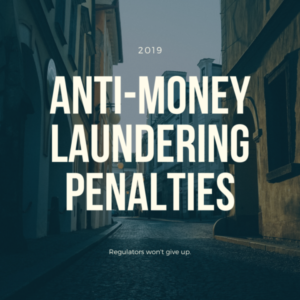There is a saying that perception is reality. Therefore, if you run a company today, you need to keep up with how the public is perceiving your company. Even if you believe some of the perceptions that other people have of your company are inaccurate, this is not going to help you generate more business if the public has a negative perception of your business. Where do people get these perceptions from? One source could have to do with adverse media.
You have a lot to do on a daily basis. You may not have time to produce articles, blog posts, and other types of content that you can share and communicate with your customers. Instead, there’s a good chance that both current and potential customers are generating their views of your company based on what they hear in the news. As a result, you need to keep up with what is being said about your business in the news, even if you do not like it. That is where adverse media is important. What is adverse media, how does it play a role in your regulatory liability, and what does it have to do with money laundering prevention?
An Overview of Adverse Media
First, it is important to define adverse media. Adverse media is defined as negative news of any kind that is somewhat unfavorable. Keep in mind that there are many types of media. For example, there are traditional news organizations, such as newspapers, that produce articles on a regular basis. This is what people usually think about when they hear about adverse media.
On the other hand, social media plays a role as well. A lot of what is established on social media is embellished. Some of it is downright false. Furthermore, you need to keep up with misinformation that could be published as well.
This is also important because you need to think about who you are doing business with. If you are conducting business with someone who is considered to have an “adverse media profile,” you may be placing your business at risk without even realizing it.
Adverse Media: Where Does it Come From?
In addition, it is also important to understand where adverse media could be coming from. There are countless sources of adverse media out there. Some of the most common examples include TV and radio outlets. On the other hand, broadcast news, newspapers and print, magazines, and even articles that are published online could be considered as sources of adverse media.
Keep in mind that there are plenty of unstructured media outlets as well. Social media is the biggest example. People who run their own websites, blogs, and even social media profiles could be considered adverse media. Even though there is a lot to keep track of, you do need to keep up with it because it plays an important role in the daily operations of your business as well as how people perceive your company.
What Are the Implications of Adverse Media?
The biggest thing that you need to keep in mind is that adverse media could be a reflection of Prior criminal activity. If someone you are doing business with may have been involved in a financial crime in the past, and authorities discover that the individual is affiliated with your business, you could be placing your company in harm’s way as well.
On the other hand, if you conduct a thorough search, and you do not uncover any evidence of adverse media in someone’s past, then it significantly reduces the risk of being involved in a money laundering scheme. By transference, this also reduces the amount of risk you are taking out as an organization.
Furthermore, you are also responsible for making sure that anyone you are doing business with has not been placed on a sanctions list. Keep in mind that there are plenty of examples of sanctions listings out there. This includes both domestic and international lists. You should keep your eyes open for these lists as you are doing your due diligence with respect to adverse media.
The Importance of Conducting an Adverse Media Check
The most important reason why you should conduct an adverse media check is that this is a critical part of doing your due diligence. By conducting an adverse media check, you may be able to uncover evidence of financial theft, identity fraud, money laundering, drug trafficking, financing of international terrorist organizations, and more. Address media can pose a significant threat to the reputation of your company. Furthermore, it can also lead to Legal repercussions, increasing your potential regulatory liability.
You need to be on the lookout for adverse media when it comes to your business partners and deals. This is also an important part of AML and KYC legislation. Therefore, you need to understand how to conduct an adverse media check and keep up with the current regulations with respect to AML and KYC. That is where we can help you.
Rely on Truth Technologies for Help with Adverse Media Checks
You may not have time to conduct adverse media checks on everyone you work with. On the other hand, this doesn’t make it any less important. That is where we can help you. We are Truth Technologies, and we can help you with all aspects of AML and KYC practices, including adverse media checks. Contact us today!



